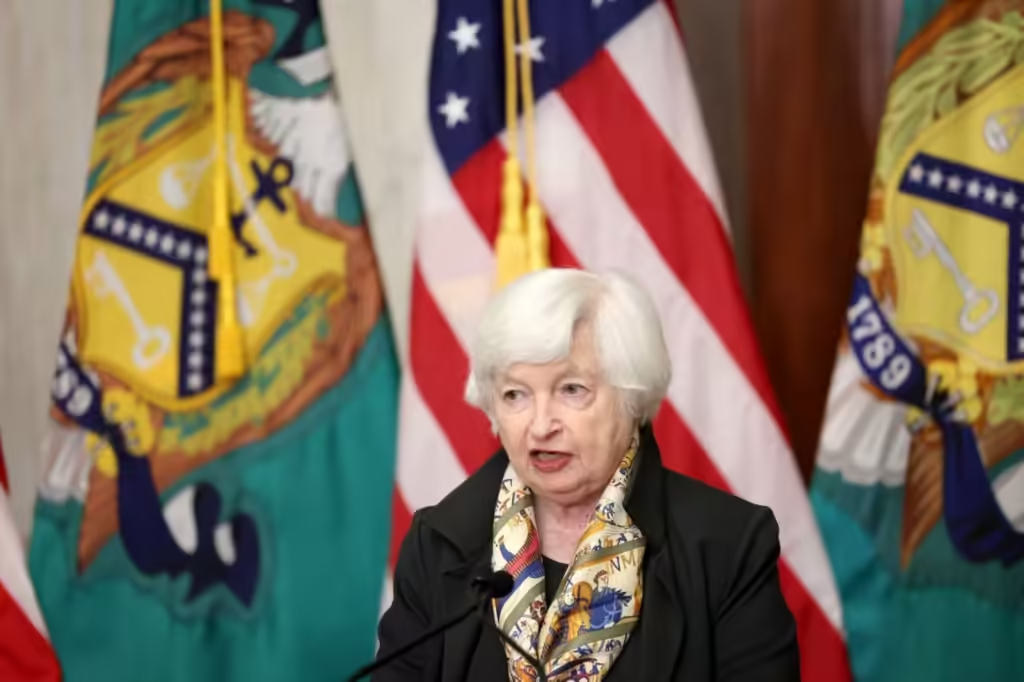April 16, 2024 5:36 pm ET
Treasury Secretary Janet Yellen stated on Tuesday that the Administration is considering all options to disrupt Iran’s financing of terrorism. This comes after a resounding 383-11 vote in the House on Monday to broaden sanctions against Chinese financial institutions engaged in purchasing Iranian oil.
It’s been widely acknowledged that the White House has been hesitant to impose tougher sanctions on Iranian oil, fearing a potential increase in prices before the November election. Consequently, the Administration has turned a blind eye as Chinese refineries, known as “teapots,” have been importing increasing quantities of Iranian crude at discounted rates.
Iran’s oil production took a hit following the Trump Administration’s withdrawal from the 2015 nuclear deal and its imposition of the “maximum pressure” campaign. However, during President Biden’s tenure, Iranian crude exports have surged by approximately one million barrels per day, almost matching the increase in U.S. crude exports under his leadership.
China is the primary destination for nearly all of Iran’s 1.6 million barrels per day in exports, providing Tehran with an estimated $35 billion to $45 billion annually to fund attacks on Israel and its network of terrorist proxies. This funding also aids in Iran’s drone production, which Russia utilizes in attacks on Ukraine. China’s support for this axis of terror has been blatant.
Beijing notably refrained from condemning Hamas’s October 7th attack, and on Monday, Chinese Foreign Minister Wang Yi labeled Iran as a “comprehensive strategic partner.” China has urged influential countries, namely the U.S. and Europe, to encourage Israel to de-escalate tensions, demonstrating its alignment with Iran.
The Administration’s failure to curb Chinese oil purchases underscores broader shortcomings in its deterrence strategy. While Biden officials have criticized China for its exports of solar panels and industrial goods, they have been less vocal about China’s aid to Iran’s military capabilities.
Sanctions imposed by the Administration have had minimal impact. For instance, export controls on U.S. technology to Chinese firms supplying components for Iranian and Russian drones have been insufficient. The addition of entities to the blacklist by the Commerce Department has been sluggish, despite these components being utilized in attacks in the Middle East and Ukraine.
The primary focus of the White House seems to be maintaining stability in U.S.-China relations and keeping global oil prices low to prevent spikes in gasoline prices, especially during the summer months. Despite rising oil prices amid global tensions, the market remains relatively stable due to significant spare global oil supply, particularly from Saudi Arabia and the United Arab Emirates.
The House’s passage of sanctions against Chinese independent refineries is a litmus test for Biden’s commitment to punishing Iran for its aggression against a U.S. ally. While Democrats in Congress are wary of gas price increases, allowing China to continue financing Iran’s terror activities poses risks of future supply disruptions and undermines national security interests.

